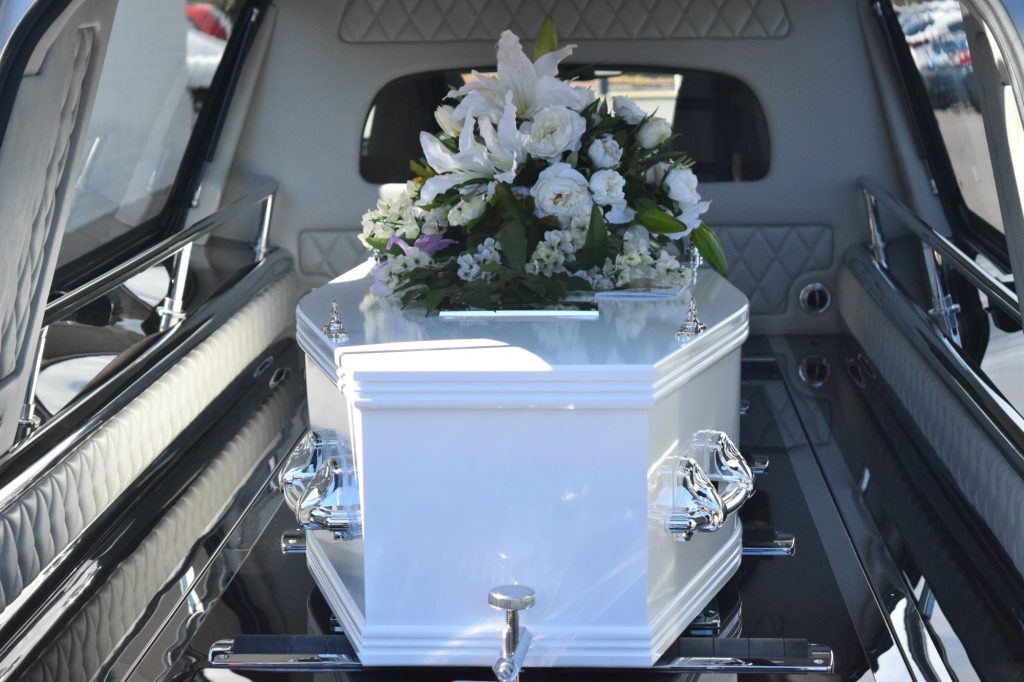
Losing someone you love is difficult, draining, and can be overwhelming. Often, the experience is new and handling arrangements is unknown territory.
Although the passing of a loved one comes with grief there are some important tasks to handle. Find out what to do when a loved one dies with our checklist.
Check your loved one’s driver’s license, will, or advance directive. These will tell you if the person you love wished to donate any of their organs or tissues.
Time is imperative in organ donation, so you’ll need to make arrangements quickly. This minimizes the risk of the tissues becoming unviable for donation.
If arrangements were made in advance, you’ll only need to confirm them with the funeral director.
If your loved one didn’t already choose a funeral home ahead of time, you’ll need to select one. Often, families choose one that has served a family member before. A funeral director will help you plan a funeral or arrange for other services.
Some decisions you may need to make are:
Contact the Vital Statistics office. You’ll need several certified copies of the death certificate for entities later.
The funeral home may help you with this. You may also be charged for each copy.
Immediate family members and close friends will want to hear from you. Call and notify about your loved ones passing.
And when applicable, ask them for help in contacting others. Set up a phone tree to make the task easier.
Don’t leave out your loved one’s employer as well. Ask about outstanding compensation and any eligibility for health or insurance benefits.
You’ll also need to consult with the family attorney or contact a lawyer to help settle the estate.
Some financial documents you may need for this conversation are:
This conversation will cover several of your loved one’s assets and liabilities.
Contact the Social Security Administration. Survivors may be entitled for any further benefits.
Your loved one may have a life insurance policy. You’ll need to notify them of the deceased.
If your loved ones had any pets, you’ll need to arrange for temporary care until there is a permanent solution.
As far as children go, a surviving legal guardian will take custody of minors. If there is no guardian, the state social welfare may come into play. Any children will experience grief heavily. Make sure you help get them the support they need.
Locate and collect all important documents. They’ll help you navigate the days ahead.
If you can’t find them right away, try searching for any of the following:
If no one will be living in the house or apartment, you’ll need to make sure all utilities are cut off. Some utilities you’ll need to call:
You should also ensure any subscriptions and internet accounts stop. Newspapers and magazines as well as any other box subscriptions.
Visit the post office and arrange for any mail to get forwarded to where it needs to go. Usually, this is to the executor of the estate.
Typically, the executor of the estate will handle any unpaid debts. However, it’s still a good idea to notify creditors of the death.
If you are responsible, make arrangements for debt pay-off.
You’ll also want to make any cancellations. Contact the DMV to clear your loved one’s driver’s license record. Cancel any email or website accounts. Closeout any social media accounts as well.
Also, if your loved one was involved in any organization memberships, you’ll want to ask how to cancel their membership.
Before going through any other belongings, make sure your loved one’s home and car are both locked. Also be sure their car is parked legally, where it can be for a while.
Ask for family members and close friends to help inventory and distribute your loved one’s personal belongings.
This is a good opportunity for anyone to set aside items that hold personal significance. It’s also a good time to decide which items should be donated or sold.
There will be many people who show their emotional support during this hard time. You’ll want to make sure you take the time to thank them for being there.
To help, make a list of anyone who helped in the process. And anyone who sent flowers or other gifts. A list will make it easier when you write out notes later.
Taking care of business after a loved one’s death isn’t easy. It’s a painful process and time-consuming.
But, you don’t want to forget about yourself when you’re figuring out what to do when a loved one dies.
Take the time to grieve. Relax where you can. Reflect on the process. Do whatever it is you need to do to take care of yourself.
When it comes to the process of grieving and saying goodbye to a loved one, it helps to find someone that can guide you through the process. Contact us today for more information about cremation and how we can help.

Contact | Obituaries | Site Map | Privacy Policy | Terms of Use | Our Commitment to Accessibility |Fort Worth Cremation Services | Dallas Cremation Services | Website by FRM Websites
One Response
Witnessing my mother loose physical and mental abilities, going senile by the day, no longer wanting to be in this life anymore due to not having the quality of life is very painful. I already take note of these lists. Thank you so much for your help. It means a lot.